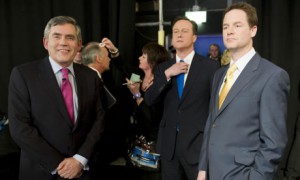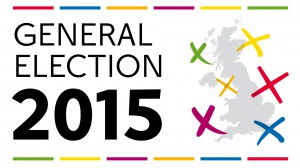May 8, 2015, by James
The New Government: Some Predictions
Yesterday’s election must go down as a complete victory for David Cameron, in a day he has:
.
1. Won a national majority.
2. Seen the leaders of all three of the largest nationwide opposition parties resign.
3. Removed a number of key figures (Ed Balls, Vince Cable) useful for stabilising the, now leaderless, opposition going forward.
4. Cultivated the rise of a rival that has little desire to challenge his authority in 91% of the UK economy.
.
…The man makes Frank Underwood look like an amateur.
Maybe that’s a little unfair, I’m not saying the result is either good or bad, indeed on the worldwide political scale the Conservatives are actually far more liberal than we realise. A lot of the more extreme ‘5 more years will destory the education system/NHS/social mobility’ arguments can be dismissed.
Nor am I saying Cameron’s actions have been cynical. Regarding his ‘support’ for the SNP, Cameron has espoused the benefits of local devolution on purely economic grounds since his earliest days as an MP and with regards to the Lib-Dems, well… they shot themselves in the foot in return for a referrendum on Alternative Voting. That said, if it has been a power play (and I can’t say it has), it’s impressive. Textbook divide and rule. I’m slightly in awe.
Looking forward, I would be intrigued on how the next term unfolds. The economy is on the up, allowing government to spend less time fire-fighting the short-term issues and more time on institutional change. This could be a very influential period, then again the absence of an effective opposition tends to result in greater party in-fighting and Conservative back-benchers are already some of the testiest around. Plus sweeping changes are difficult in a mature economy.
.
With this in mind, some predictions:
.
• There will be a referendum on leaving the EU but we will stay. My reasoning is that leaving the EU will result in too much potential for instability. The forces of capital hate instability of any kind. For a comparitive example, see the sudden waves of uncertainty when it became apparent Scotland might actually win the independence vote.
• There will be some attempts to ‘Torify’ certain elements of our infrastructure but the changes will not be profound, we have too many enthrenched institutions for there to be sweeping change. As an example, the over-arching influence of OFSTED will ensure teaching is always Labour dominated etc…
• Despite privatisation, the NHS will continue to be free at the source and relatively comprehensive, though life may get more stressful for healthcare professionals. There may even be threats of large scale strike action.
• We’ll see increased devolution of power to local authorities and community interest groups.
• Local councils will continue to transition from being in-house providers of services to external outsourcers. Sometime this will work, sometimes it will go terribly.
• Regardless of the party, the world will continue to get better.
• Regardless of the truth, newspapers will continue to claim it’s getting worse.
Let me know what you think.



I question the truth in your statement “I’m not saying the result is either good or bad” when you can “dismiss” arguments about the future of the NHS so easily. Unless specifically excluded from the treaty, TTIP could have disastrous effects on an NHS that is undergoing privatisation. Furthermore, I fail to see how social mobility can be thriving when there is increasing demand for food banks in poorer communities. I have personal experience of friends from home having to resort to food banks in order to feed themselves and their children in the last few days before pay day. I don’t think these arguments are extreme and I certainly don’t think they should be so easily dismissed.
Hi Rachel, thank you for your comment. You raise some good points. I am grappling with a deadline currently but will provide a full reply the second I have time to dedicate to it. Should any others have opinions either to the affirmative, contrary or even unrelated, please feel free to contribute to the debate.
J
This article is poorly written (as Rachel points out, you ARE saying the result is good or bad – you’re saying it’s good, in fact, you’re saying it’s impressive; nor do you give reasons why arguments can be ‘easily dismissed’) and makes some dubious assertions. For example, the fact that the ‘economy is on the up’ is less to do with austerity measures and more to do with the reversal of severe spending cuts. It is also unclear what you mean by ‘fire-fighting short term issues’.